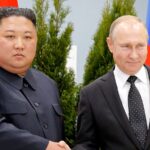One such X-factor (pun unintended) is Elon Musk. The businessman has been a vocal Trump supporter and now sits at the centre of Trump’s policy universe. There is intense speculation over Musk’s new role, as well as attempts to understand the man, his psyche and its likely impact on the incoming administration. There are multiple ways to skin this, just like the proverbial cat.
The first persona is one with an official role. Officially, he has been designated as co-head of the department of government efficiency (DOGE), a new ministry designed to trim federal flab. Musk will share responsibilities with Vivek Ramaswamy, whose survival instincts, after his failed presidency bid, drove him into Trump’s arms.
A fog blankets DOGE’s exact role; in a co-authored article for Wall Street Journal, Musk and Ramaswamy wrote: “The two of us will advise DOGE at every step to pursue three major kinds of reform: regulatory rescissions, administrative reductions and cost savings.”
His second identity revolves around his actual vocation: tech entrepreneurship with large investments spread across social media, space, artificial intelligence and electric vehicles. This part of Musk’s character has given rise to guesswork on whether he will be able to maintain a distance between his government role and his businesses, or he will use one to further the other.
For example, he looks inches away from closing two crucial deals with the Indian government before officially moving into his new role. In the first instance, the Indian telecom ministry announced in October a willingness to allocate broadband spectrum to Musk’s satellite service, Starlink, without it having to participate in an auction, the resource-allocation process followed for terrestrial operators (such as Jio and Airtel).
The Indian government’s ‘willingness’ is expected to be converted into a licence if Starlink adheres to the Indian government’s security concerns over satellite telephony and data residency. With Musk now firmly ensconced within the new regime, it will be interesting to see the give-and-take between the Indian government and Elon Musk.
A second deal was consummated on 19 November, a few days after Donald Trump’s election victory. Musk’s SpaceX transported and successfully inserted into geosynchronous transfer orbit an Indian communications satellite, GSATN-2.
While the launch marks a departure from India’s self-reliant and indigenous satellite launch programme, it seems to have been necessitated by GSATN-2 being heavier than what Indian launch vehicles can bear; but it is the choice of SpaceX at this juncture that raises eyebrows.
What might rise are the hackles of Musk’s cabinet colleagues over the businessman’s China exposure. Electric car manufacturer Tesla’s Shanghai plant has an annual capacity of 950,000 vehicles, two-fifths of the company’s total capacity of over 2.35 million.
As China hawks within the inbound administration sharpen their talons, the fate of Tesla’s China expansion plans looks uncertain and will test Musk’s balancing skills. Meanwhile, Tesla’s now-on-now-off plans for India could get a relook.
But Musk seems to be doing much more than busying himself with DOGE or his quotidian business interests. And this gives rise to his third identity. According to economists Noah Smith and Erik Torenberg, who jointly anchor the podcast Econ 102, Elon Musk should be called the shadow president of the US.
According to various reports, Musk has been busy contacting and talking to various government leaders and officials in Russia, China and Iran even before the new government has been sworn in, thereby giving a new meaning to back-channel talks and track-II diplomacy.
In some other reports, Musk even reportedly attended meetings in which Trump interviewed candidates for cabinet positions. Musk, by the way, can never be US president because he was not born stateside; hence, shadow president.
The word ‘shadow’ has interesting Jungian associations. According to the Dictionary of Psychology from the American Psychological Association, the shadow is an archetype within Carl Jung’s analytical framework of psychology that represents the darker, unconscious side of the human psyche, “which may comprise anything (e.g. a trait, desire or emotion, whether positive or negative) that is unacceptable to an individual’s conscious ego and as such remains unexpressed and hidden in the unconscious.”
An inability to deal with the unconscious or darker side can lead to unpredictable behaviour; combined with what looks like Trump’s own whimsical approach, it presents a risk.
The Economist has it down pat: “He could also fail before he even starts, because of the combustibility of the Trump-Musk combination…The fusion of Silicon Valley libertarianism and techno-utopianism with the MAGA nationalism of Mr Trump’s world is inherently volatile.” It will be interesting to see what dominates: whether political power catalyses Musk’s inner desires or whether he eventually comes to personify Trump’s shadow, projecting the president-elect’s repressed ideas, desires and instincts.
#Elon #Musk #shadow #presidentelect #United #States


